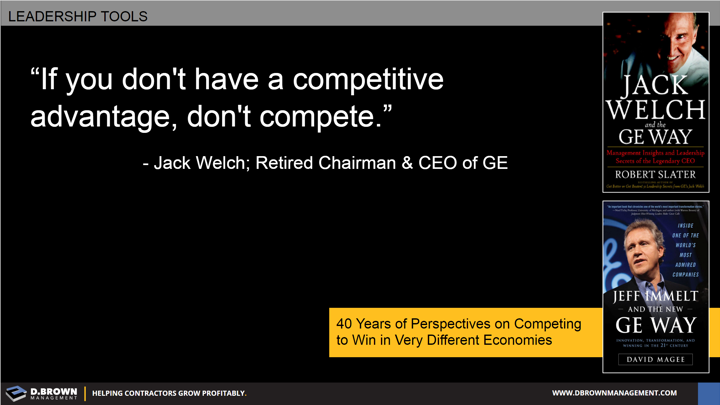Getting this right then executing effectively can easily have a 2X+ positive impact on earnings over the next 5.
- Identifying market(s) and customers that will be growing over the next 10+ years.
- Developing operational capabilities and capacity that adds maximum value to these customers while being difficult, time consuming or costly for competitors to copy.
- Building advanced preconstruction services integrated with aggressive business development to identify projects and customers well before anyone else even has a chance.
- Where possible including operations and maintenance services to the project after the construction phase including special projects and service work.
General Electric consists of many individual business units each with P&L responsibilities and expected to work together. Many contractors are structured in a similar way.
Their management training program teaches people how to run businesses - how to compete.
“If you don't have a competitive advantage, don't compete.”
What is your competitive advantage today?
What will your competitive advantage be tomorrow?
What are you doing to hold onto your current advantage and prepare for tomorrow?

